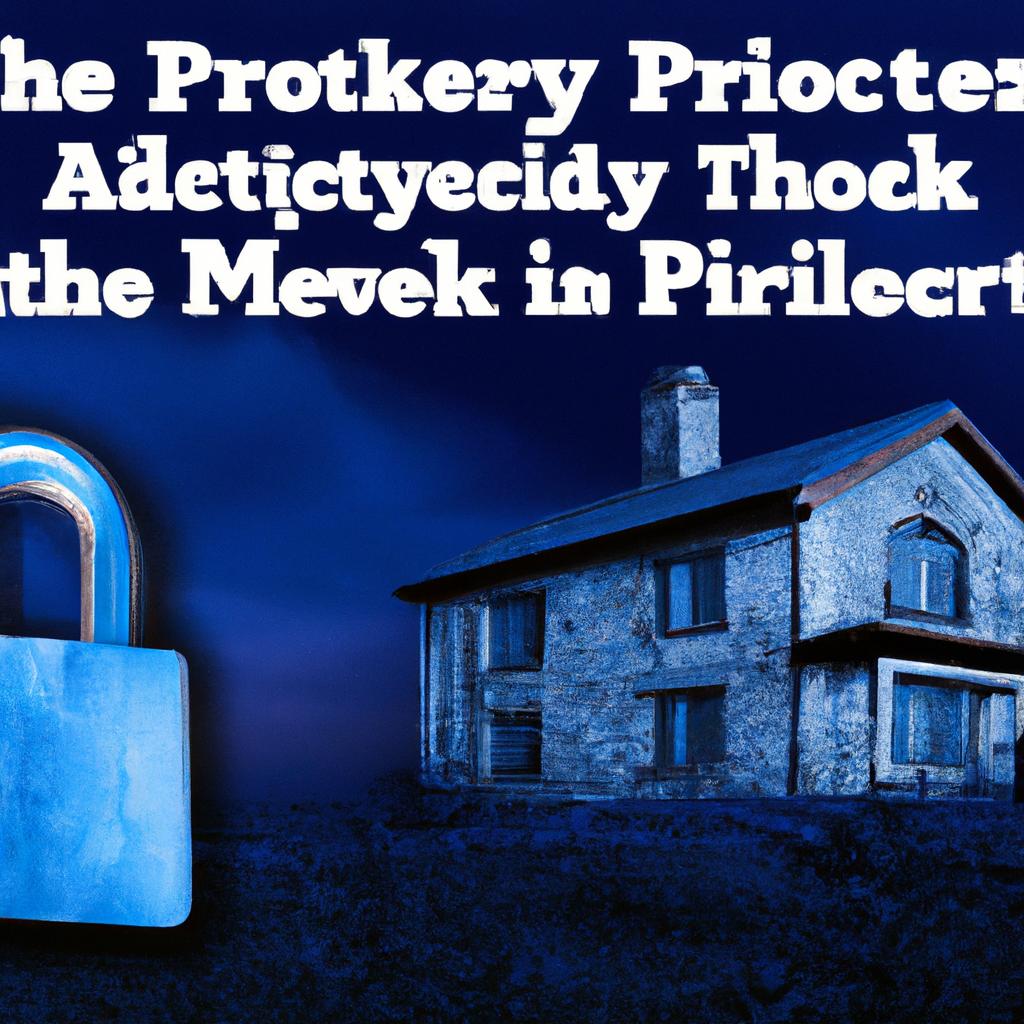Ever come across the phrase “probate real estate” and found yourself puzzled about its meaning? You’re not the only one. In the realm of property investment, probate properties can be somewhat enigmatic. In this piece, we’ll demystify what probate real estate is and how it stands apart from other property types. So, make yourself comfortable, and let’s explore the intriguing world of probate properties together.
Decoding Probate Properties
Probate properties are essentially real estate assets that are transferred from a deceased owner to their heirs or beneficiaries via a court-supervised procedure known as probate. During this procedure, the court verifies the deceased person’s will and supervises the distribution of their assets to the rightful recipients. These properties can include residential houses, commercial structures, land, or any other type of real estate owned by the deceased.
A notable characteristic of probate properties is that they can often be sold at a significantly reduced price compared to their market value. This is usually due to the urgency of the sale, as the beneficiaries may need to liquidate the assets quickly to distribute the proceeds or cover estate-related expenses. As a result, probate properties can offer unique opportunities for real estate investors or home buyers seeking a bargain.
It’s crucial to understand that purchasing a probate property can be a more intricate and time-consuming process compared to a conventional real estate transaction. There may be extra legal requirements, paperwork, and potential delays due to the court’s involvement in the sale. However, with the right guidance and expertise, maneuvering through the probate process can lead to a successful acquisition of a valuable property at a below-market price.
Maneuvering Through the Probate Process
Probate property refers to assets owned by a deceased individual that are subject to the probate process. This can include real estate, bank accounts, vehicles, and personal belongings.
During probate, the court supervises the distribution of the deceased person’s assets to their heirs or beneficiaries. This process can be lengthy and complex, involving the validation of the will, settling debts, and resolving any disputes among beneficiaries.
It’s important to note that not all assets owned by a deceased individual will be subject to probate. Assets that are jointly owned, have designated beneficiaries, or are held in a trust typically bypass the probate process.
Understanding what constitutes probate property and how the probate process operates can help individuals navigate this legal procedure more effectively and ensure a smoother distribution of assets to heirs.
Considerations When Handling Probate Properties
When dealing with probate properties, several factors need to be considered to ensure a smooth and successful process. One crucial aspect to remember is the unique legal requirements that come with probate properties. These properties are typically tied up in the probate process due to the owner’s death, which means that specific rules and regulations must be adhered to when dealing with them.
Furthermore, it’s vital to consider the condition of the property itself. Many probate properties may require repairs or updates, which can impact both the property’s value and the ease of selling it. It’s important to assess the property carefully and factor in any necessary repairs or renovations when determining its value.
Another key factor to consider when dealing with probate properties is the potential for disagreements among family members or heirs. In some cases, disputes may arise over the distribution of assets or the sale of the property. It’s important to navigate these potential conflicts carefully and ensure that all parties involved agree on the best course of action for dealing with the property.
In summary, when dealing with probate properties, it’s important to be aware of the legal requirements, the condition of the property, and the potential for conflicts among family members. By keeping these factors in mind and approaching the process with care and attention to detail, it’s possible to successfully navigate the complexities of probate properties.
Guidelines for Selling Probate Properties
In the realm of real estate, a probate property refers to a property that is being sold after the owner’s death. These properties often come with their own set of challenges and complexities that distinguish them from regular real estate transactions. Understanding what probate properties are and how they differ from traditional sales can help you navigate the process more effectively.
When it comes to selling probate properties, there are several important tips to keep in mind:
- Conduct Thorough Research: Understanding the probate process and local laws surrounding probate properties is crucial. Ensure you know what is required to sell a probate property in your area.
<li><strong>Engage Professionals:</strong> Consider hiring a real estate agent who specializes in probate properties. They can help guide you through the process and ensure that everything is handled correctly.</li>
<li><strong>Prepare the Property:</strong> Before listing a probate property, ensure it is clean, staged, and ready for showings. First impressions matter, so taking the time to prepare the property can help attract more buyers.</li>
| Tip | Details |
|---|---|
| Review Title | Ensure the title is clear and accurate to attract potential buyers. |
| Set a Realistic Price | Work with your agent to set a competitive price that reflects the property’s condition and market value. |
Conclusion
In conclusion, understanding what a probate property is can help alleviate confusion and streamline the process of dealing with an estate after someone passes away. Whether you are a beneficiary, executor, or potential buyer, knowing the ins and outs of probate properties can make a significant difference in navigating the legal complexities that come with estate administration. By familiarizing yourself with the basics of probate properties, you can approach the situation with confidence and assurance. Remember, seeking guidance from legal professionals and estate experts can provide invaluable assistance throughout the probate process. So, next time you find yourself dealing with a probate property, rest assured that you are equipped to tackle the situation head-on.

Unlocking the Mystery: What Exactly is a Probate Property?
Probate properties are a unique type of real estate that can offer great opportunities for investors and homebuyers. But what exactly is a probate property, and how does it differ from other types of real estate? In this article, we’ll explore the ins and outs of probate properties, including what they are, how they work, and the benefits of investing in them. Let’s dive in!
What is a Probate Property?
When a person passes away, their assets, including real estate, must go through a legal process known as probate. During probate, the court will oversee the distribution of the deceased person’s assets, including any real estate they owned. A probate property is a piece of real estate that is going through this court-supervised process.
How Do Probate Properties Work?
Probate properties are typically sold through a probate sale, which is overseen by the court and must adhere to specific rules and regulations. The executor of the deceased person’s estate is responsible for managing the sale of the property and ensuring that it is sold at fair market value.
Buyers interested in purchasing a probate property will need to make an offer through the court, and the court will then evaluate the offer to ensure it meets all legal requirements. Once the offer is accepted, the sale will proceed like a traditional real estate transaction, with the buyer taking ownership of the property once all the necessary paperwork is completed.
Benefits of Investing in Probate Properties
- Opportunity for Below Market Value Deals: Probate properties are often sold at a discount, making them a great opportunity for investors looking to purchase real estate below market value.
- Limited Competition: Due to the unique nature of probate sales, there is often less competition from other buyers, giving investors a better chance of securing a deal.
- Potential for Quick Sales: Since probate properties are often sold as-is and need to be sold quickly to settle the deceased person’s estate, buyers may be able to close on a property faster than with a traditional sale.
- Unique Investment Opportunities: Probate properties can offer unique investment opportunities, such as distressed properties or properties in desirable locations that may not be available through traditional channels.
Practical Tips for Purchasing Probate Properties
When considering purchasing a probate property, it’s essential to do your research and be prepared for the unique challenges that may arise. Here are a few practical tips to help you navigate the probate property buying process:
- Work with a Real Estate Agent: A real estate agent with experience in probate properties can help guide you through the process and ensure that you are following all legal requirements.
- Get Pre-Approved for Financing: Having financing in place before making an offer on a probate property can help make your offer more attractive to the court and increase your chances of success.
- Conduct Due Diligence: Thoroughly research the property, including any liens or encumbrances, to ensure that you are aware of any potential issues before making an offer.
- Be Patient: The probate process can be lengthy, so it’s essential to be patient and prepared for potential delays along the way.
Case Study: Investing in a Probate Property
| Property Address | Purchase Price | Sold Price |
|---|---|---|
| 123 Main Street | $200,000 | $150,000 |
| 456 Elm Avenue | $175,000 | $140,000 |
By purchasing probate properties at a discount and investing in renovations, investors can achieve a significant return on their investment.
First-Hand Experience: Navigating the Probate Process
As a real estate investor, I have navigated the probate process and successfully purchased probate properties. Through careful research, due diligence, and working with experienced professionals, I have been able to capitalize on this unique real estate opportunity. I highly recommend considering probate properties as part of your investment strategy.
Overall, probate properties can offer excellent opportunities for investors and homebuyers alike. By understanding the ins and outs of the probate process and following practical tips, you can unlock the mystery of probate properties and take advantage of this unique real estate opportunity.


